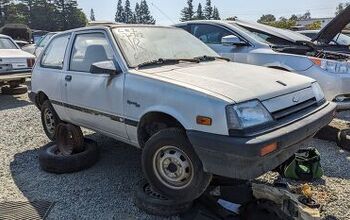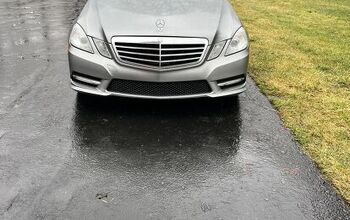Volkswagen of America CEO Horn: We Need to 'Bloody Learn' to Get Act Together

Volkswagen of America CEO Michael Horn testified to a congressional committee Thursday that he wasn’t aware until last month of the illegal “defeat device” installed on nearly 500,000 cars in the U.S. — approximately 11 million worldwide — and that the car company could take several years to fix its cars.
Horn testified in front of the U.S. House Energy and Commerce’s subcommittee for oversight and investigations for more than two hours.
“I would like to offer a sincere apology for Volkswagen’s use of a software program that served to defeat the regular emissions testing regime,” Horn said in a prepared response before answering questions from representatives.
Questions from the members of the subcommittee centered on when Horn was made aware of the illegal devices that cheated their way through Environmental Protection Agency emissions tests.
Horn said that he was told of the illegal software code — which could detect when the cars were being tested for emissions and temporarily reduce performance to meet emissions standards in testing-mode only — in September 2015, when the EPA notified the automaker of its non-compliance. He said he was unaware of the defeat device in spring 2014, when researchers at West Virginia University told the automaker its cars polluted up to 40 times the legal limit.
“I had no reason to believe there was a defeat device,” Horn said.
Horn said cars equipped with the illegally polluting diesel engines were recalled in December 2014, but those cars were not brought into compliance with legal standards.
Questions from committee members focused heavily on dealer compensation for cars that Volkswagen refused to sell beginning last month. Horn said the company sent dealers an undisclosed amount of money Oct. 1 to offset losses and to spend for company satisfaction.
Horn added few key details on how the automaker would fix its cars. For Generation 3 cars — model year 2015-2016 cars — a simple software fix would start at the beginning of next year. For Generation 2 cars — Volkswagen Passats starting in 2012 fitted with urea injectors — a fix would be proposed by the “middle of next year,” he said. For Generation 1 cars — Jettas, Golfs and Beetles — which comprise about 350,000 of the 482,000 cars in America, Horn didn’t give a timeline for those significant fixes.
“We know we can fix these vehicles to achieve emissions standards,” Horn said.
Horn said he was disappointed in the automaker in its deception and said that he believed the cheating was limited to a few engineers who knowingly broke the law. Representatives said that was hard to believe.
“Either your entire organization is incompetent … or they are complicit at the highest levels in a massive cover up,” said Rep. Chris Collins, a Republican from New York.
“I worked 25 years for this company … not cheating was always a given for this company, for me,” Horn said. “I hope these (internal) investigations will discover what drove these people … into these decisions and these actions.”

More by Aaron Cole
Latest Car Reviews
Read moreLatest Product Reviews
Read moreRecent Comments
- Carson D I was thinking that this is such a nice car, and it is a bit of a shame that you use it so little. Then I remembered that I still have a car that I purchased new in 2007 which now has 78,000 miles and is sitting in a parking space I moved it to so my parents could park in its space when they visited about a month ago. That your 2019 Golf Sportwagen had headliner and water intrusion issues is a stark reminder that people who still buy VWs are like those people who still vote for bail reform politicians after they've been assaulted by someone who'd already been arrested for violent acts half a dozen times in two months. I knew two people who bought new Jetta Sportwagens who suffered spooling mesh headliners that became jammed, unfurled and frayed combined with leaking two-plane sunroofs...in 2009! They were also involved in a class action lawsuit about 'mandatory optional' equipment that they paid for that the cars weren't actually equipped with. I think it was Bluetooth links.
- Bd2 Engine problems have been fully remedied, please have no further concerns. All customers are satisfied, check Google and Reddit for further information. Salutations and please have a nice day.
- Wjtinfwb Keep it. A good car you're not tired of is like a great dog. Irreplaceable. After 45 years of car ownership, there's just a few I wish I never sold and realized my total proceeds from selling those few cars was less than 75k dollars. Not a lot of Lexus that you'd say are irreplaceable, but a solid GS is one of them.
- Add Lightness Lots of Eye rolling with the Urus.Less eye rolling with the equally useless (or should I say underutilized) LM002.
- Tim You can't buy Fisker for $27 million. All that buys is the shares, which are basically worthless at this point. To buy the company you have to ante up the $1.3 billion owed to its creditors, otherwise they'll just take it away from you in a few weeks.For all we know the house may also be leveraged to the hilt. That seems to be how this guy rolls.Still, if I had to choose, I'd choose the house. I hate EVs.

































Comments
Join the conversation
From the people who are famous for saying "Wir haben es nicht gewusst? Make that "didn't know we did" and/or "didn't know we weren't supposed to do that". Better look whether Volkswagen did not use cheating software to pass gasoline car emissions testing too...
“Either your entire organization is incompetent … or they are complicit at the highest levels in a massive cover up,” said Rep. Chris Collins, a Republican from New York. What an obnoxious false dichotomy. It is NOT either or and there is easily a continuum of possibilities here. Possible scenarios: 1) Upper level manager/exec saying to a middle manager in diesel drivetrain engineering, in a fit of rage, "Look, just f-ing make it work! I don't care how! If we don't meet these targets in 6 months, you're fired!" And then that exec never bothered to check up on how they achieved those targets. 2) Two groups were placed against each other competitively and one group cheated to get the bonus. What Rep. Collins doesn't seem to understand is that large organizations don't have the all-knowing MCP from Tron sitting at the top. Hell, the MCP wasn't even all-knowing. I wish, wish, wish politicians would quit pandering to the intellectually inferior who can't possibly understand concepts that have more than two shades of gray.